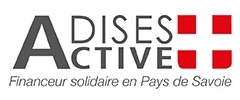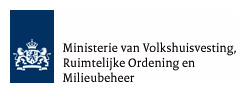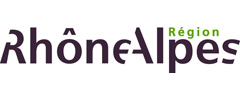Water Safety Plans for Romanian and Moldavian schools
WECF trained 10 schools in five Romanian and Moldavian villages last month on water safety plans
04.11.2008 |Margriet Samwel
Last month WECF trained teachers of at least 10
schools in 5 Romanian and Moldovian villages, on how to
develop Water Safety Plans (WSP) for small scale water supply
systems, such as public or individual wells.
During the training the teachers made an activity plan and time schedule on how to develop WSP's for their local water supply systems. The aim of a WSP is to identify and minimise the risks of water supply system from the original well up to the consumer.

The WSP's will be developed with the involvement of the pupils, local authorities, and supported by local partners and WECF. All the villages have in common: lack of safe water, nitrate polluted water from wells, pit latrines in the yard, no management of animal, human or other organic waste and among the citizens low awareness about water pollution and related diseases.
The activities will be carried out within the projects MATRA-KAP Romania, ELA project - both funded by Dutch Ministry of Foreign Affairs and the project Safe Sanitation Health and Dignity, SSDH, funded by Fondation Ensemble, France.

During the first stage schools will perform an investigation of their own local situation by analysing the sources of water, appearances of health related diseases by inviting the local doctor or other experts; performing water tests with the children on nitrate, turbidity, colour and eventually order a laboratory for additional tests such as on bacteria. This will eventually lead to mapping of the results and the identification and mapping of the possible sources of pollution. The results of the investigation will be presented to the authorities and citizens. Discussions with all stakeholder and planning on the improvement of the local situation should follow.

The participating teachers received information on how to use the by WECF prepared WSP toolbox, which contains a manual with background information about WSP and water related issues, questionnaires, checklists and some water tests. However, the local activist should adjust the developed materials to the local conditions. (please see WECF Publication: "Developing water safety plans involving schools" available in Romanian and English)
Example of a work plan presented by a Romanian school for developing a WSP with the pupils in their village:
Timeframe for the next 8 months:
- Meeting and awareness raising for pupils, parents about the WSP and the activities
- Hydrologic- morphologic description of the village
- Identification and classification of the water pollution sources and mapping and classification of the pollution risks
- Practical activities: Analyses of nitrate, pH, turbidity, colour
- Mapping the risks spots and presenting the results to the authorities
- Identification the connection of water related diseases and water pollution (invite medical staff)
- Practical cleaning of area of water wells, Practical activities for sanitizing and cleaning the waters, rivers in the commune
- Time to time a contest on particular issues and debates

Teacher presents the results of the WG and the discussion about the results
Related News
Having the Agenda 2030 in sight - Water and Sanitation Conference in Romania
Water and Sanitation Safety Planning in rural areas of Romania and Macedonia
28.01.2017
Women 2030 Regional Workshop in Eastern Europe
Participants from Macedonia, Albania, Bosnia Herzegovian, Moldova and Serbia introduced to gender-responsive implementation of the SDGs
22.01.2017
Taking responsibility for safe water and adequate sanitation in rural Romania
In the frame of the annual professional water and wastewater conference EcoImpuls in Timisoara, Romania, Aquademica organized a workshop for mayors in the region. The aim was to raise awareness about the responsibilities of the mayors to safely manage water and sanitation in their rural areas.
27.10.2016
“We cannot have safe water without proper waste and wastewater management”
Water and Sanitation Safety Planning in rural Romania - Closing Conference on WECF Project
04.05.2015
WECF presents 10 steps for developing Water and Sanitation Safety Plans
A two day training for teachers and local authorities enabling communities in Timisoara county, Romania, to develop their own WSSPs
28.05.2014 | WECF






































